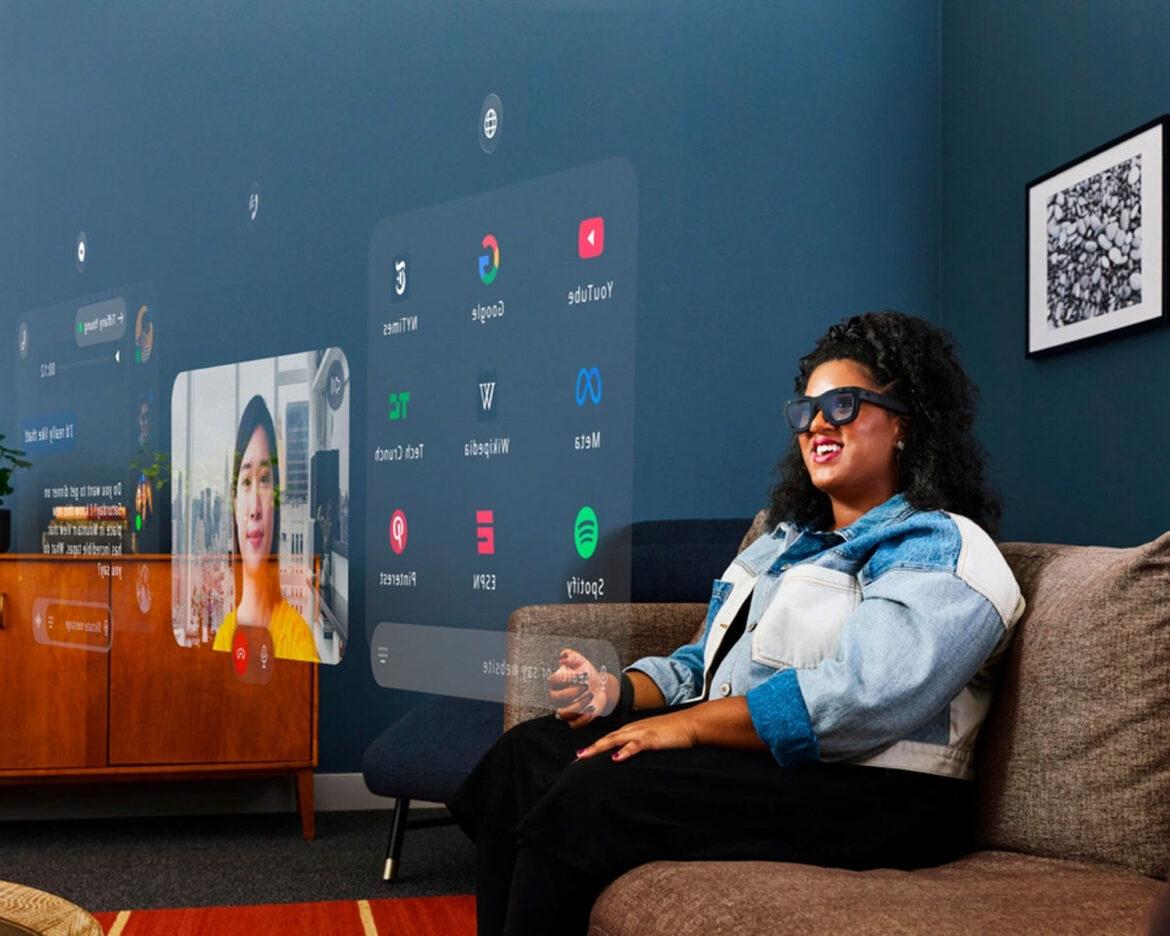At the Meta Connect event on Wednesday, CEO Mark Zuckerberg introduced Orion, which he described as “the most advanced glasses the world has ever seen.” This groundbreaking device is set to redefine the augmented reality (AR) space, offering a leap forward in wearable technology.
Orion stands out due to its compact design, significantly smaller than Snap’s recently launched Spectacles 5, and offers true AR capabilities. The glasses feature small projectors embedded in the temples, delivering a heads-up display reminiscent of an upgraded version of Google Glass. Zuckerberg noted that Orion has been in development for a decade but remains in the concept phase. “These glasses exist, they are awesome, and they are a glimpse of a future that I think will be exciting,” he said, hinting at the need for further refinement before it becomes a consumer-ready product.
One of the standout features of Orion is the “neural interface” control, developed following Meta’s 2019 acquisition of CTRL-labs. This innovative system will utilize a wristband compatible with the glasses, allowing users advanced control over the interface.
Meta is positioning Orion as the successor to its Ray-Ban Meta livestream glasses, but with far more advanced capabilities. The company described Orion as:
“[W]hile Ray-Ban Meta opened up an entirely new category of display-less glasses supercharged by AI, the XR industry has long dreamt of true AR glasses — a product that combines the benefits of a large holographic display and personalized AI assistance in a comfortable, all-day wearable form factor. Orion rises to the challenge.”
Meta has also claimed that Orion will have “the largest field of view (FOV) in the smallest AR glasses form to date,” a subtle challenge to competitors like Spectacles, which feature a much narrower FOV and bulkier design. This larger FOV, according to Meta, enables truly immersive experiences, from multitasking with floating windows to life-size holograms that blend seamlessly with the physical world.
Like many tech products in the AR space, Orion will first be available to developers, a strategy that allows companies to build excitement and foster a strong app ecosystem before public release. While still in its early stages, Orion’s debut offers a glimpse into the future of augmented reality, promising to push the boundaries of what AR wearables can achieve.



